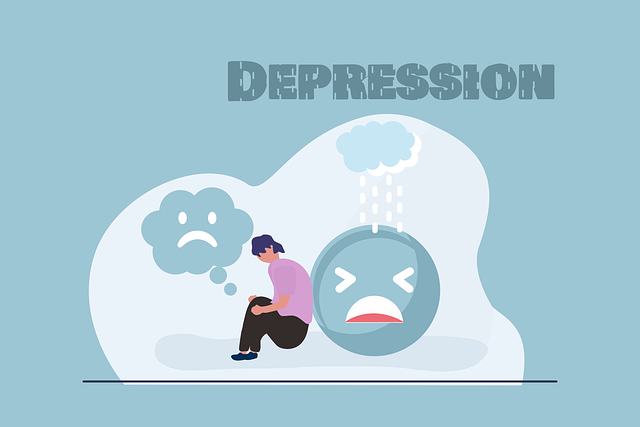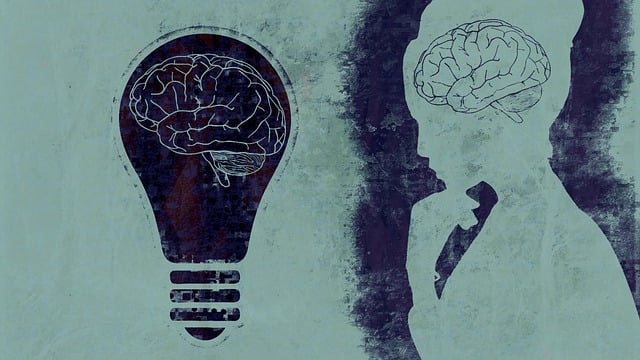Mental wellness, comprising emotional, psychological, and social well-being, is crucial for daily life and quality of life in a stressful modern world. Louisville Neuro Disorders Therapy emphasizes that neglecting mental health can lead to conditions like anxiety, depression, and neuro disorders. Effective self-care techniques such as mindfulness meditation, journaling, and compassion cultivation promote emotional well-being, resilience, and happiness. Understanding personal stressors and triggers is key to crafting an individualized self-care routine tailored to one's unique healing processes, focusing on relaxation, stability, and stress management. Incorporating evidence-based practices like CBT, mindfulness, and compassion cultivation supports symptom mitigation, personal growth, and adaptability in navigating life's challenges through Louisville Neuro Disorders Therapy. Public education plays a vital role in encouraging open conversations about mental health, reducing stigma, and promoting early intervention to take charge of one's mental wellness journey.
In today’s fast-paced world, prioritizing mental wellness is paramount. This article guides you through developing a robust self-care routine tailored for optimal mental health, using evidence-based practices. From understanding the impact of mental wellness on daily life to identifying personal stressors and building resilience, we offer actionable strategies. Learn how to incorporate Louisville Neuro Disorders Therapy techniques to foster long-term well-being and enhance your overall quality of life.
- Understanding Mental Wellness and Its Impact on Daily Life
- Identifying Personal Stressors and Triggers
- Crafting a Self-Care Routine Tailored to Individual Needs
- Incorporating Evidence-Based Practices for Mental Health Support
- Building Resilience and Sustaining Long-Term Well-being
Understanding Mental Wellness and Its Impact on Daily Life

Mental wellness refers to our emotional, psychological, and social well-being. It influences how we think, feel, and act in our daily lives, impacting our ability to cope with stress, make choices, and relate to others. While sometimes overlooked, mental wellness is just as vital as physical health, playing a crucial role in determining our overall quality of life. Neglecting it can lead to various issues such as anxiety, depression, and even more severe conditions like neuro disorders, requiring professional help from Louisville Neuro Disorders Therapy.
In today’s fast-paced world, the demands of daily life can take a toll on our emotional well-being. Therefore, promoting positive thinking and cultivating compassion are essential self-care practices. Emotional well-being promotion techniques, such as mindfulness meditation and journaling, can help individuals process their thoughts and emotions effectively. Compassion cultivation practices encourage empathy and kindness towards oneself and others, fostering a supportive mindset that enhances mental resilience and overall happiness.
Identifying Personal Stressors and Triggers

Understanding your personal stressors and triggers is a vital step in crafting an effective self-care routine for mental wellness. This process involves introspection and recognizing patterns in your thoughts, emotions, and behaviors that contribute to stress, anxiety, or other mental health challenges. It’s not uncommon for individuals to have specific situations, environments, or interactions that trigger these responses, which can vary greatly from person to person.
For example, someone might discover that loud noises, crowded spaces (a common occurrence in Louisville Neuro Disorders Therapy settings), or certain social situations are triggers that heighten their stress levels. Others may find that specific memories or thoughts related to past experiences or cultural sensitivities in mental healthcare practice resurface and cause distress. Identifying these triggers is the first step towards managing them effectively and developing strategies to foster inner strength development and self-esteem improvement, which can be tailored to individual needs.
Crafting a Self-Care Routine Tailored to Individual Needs

Creating a self-care routine that nurtures mental wellness is a deeply personal journey. It involves understanding one’s unique needs and incorporating practices that promote relaxation, resilience, and emotional balance. In Louisville Neuro Disorders Therapy, professionals emphasize that self-care isn’t a luxury but a necessity for managing stress, anxiety, or depression effectively. Every individual’s path to self-nurturing may differ; it could include activities like meditation, journaling, regular exercise, connecting with nature, or engaging in creative pursuits.
Tailoring a routine means recognizing when and how certain practices resonate with your emotional healing processes. For instance, healthcare providers often face burnout prevention strategies that involve setting clear boundaries between work and personal life, practicing mindfulness techniques during demanding shifts, and prioritizing adequate rest and self-reflection. These individualized steps are crucial for managing crises and maintaining overall mental health, complementing crisis intervention guidance as a proactive measure.
Incorporating Evidence-Based Practices for Mental Health Support

Incorporating evidence-based practices into your mental wellness self-care routine is a powerful step towards fostering emotional well-being promotion techniques. Louisville Neuro Disorders Therapy emphasizes the importance of tailored strategies that address individual needs. Cognitive Behavioral Therapy (CBT), for instance, has been proven effective in managing anxiety and depression by identifying and changing negative thought patterns. Mindfulness practices, such as meditation and deep breathing exercises, are also recommended by mental health professionals to enhance focus and reduce stress.
Additionally, cultural sensitivity in mental healthcare practice plays a significant role in creating safe spaces for diverse populations. Compassion cultivation practices have gained recognition for their ability to foster empathy and understanding, ultimately improving therapeutic outcomes. By integrating these evidence-based techniques into your self-care regimen, you can create a holistic approach that supports not just symptom management but also personal growth and resilience.
Building Resilience and Sustaining Long-Term Well-being

Building resilience is a cornerstone of mental wellness, especially when it comes to sustaining long-term well-being. It’s about equipping yourself with the inner strength to navigate life’s challenges and setbacks. Through Louisville Neuro Disorders Therapy, individuals can learn coping mechanisms that foster resilience, helping them adapt and recover from difficult situations. This process involves recognizing triggers, understanding personal strengths, and developing healthy responses to stress. By integrating these strategies into daily routines, one can prevent depression and promote a more balanced mindset.
Public awareness campaigns play a vital role in encouraging open conversations about mental health, which is essential for reducing stigma and promoting early intervention. These campaigns can educate communities on the importance of resilience building, providing practical tools to manage stress and enhance overall well-being. By combining professional therapy with widespread public awareness, individuals have access to resources that empower them to take charge of their mental wellness journey and build a resilient foundation for life.
Developing a personalized mental wellness self-care routine is a proactive step towards enhancing overall well-being. By understanding the impact of mental health on daily life and identifying personal stressors, individuals in Louisville can take control of their mental fitness. Incorporating evidence-based practices, such as mindfulness, therapy, and stress management techniques, provides a robust foundation for resilience. This approach ensures that folks in Louisville Neuro Disorders Therapy have the tools to navigate challenges and maintain long-term mental wellness, fostering a healthier and more fulfilling life.














